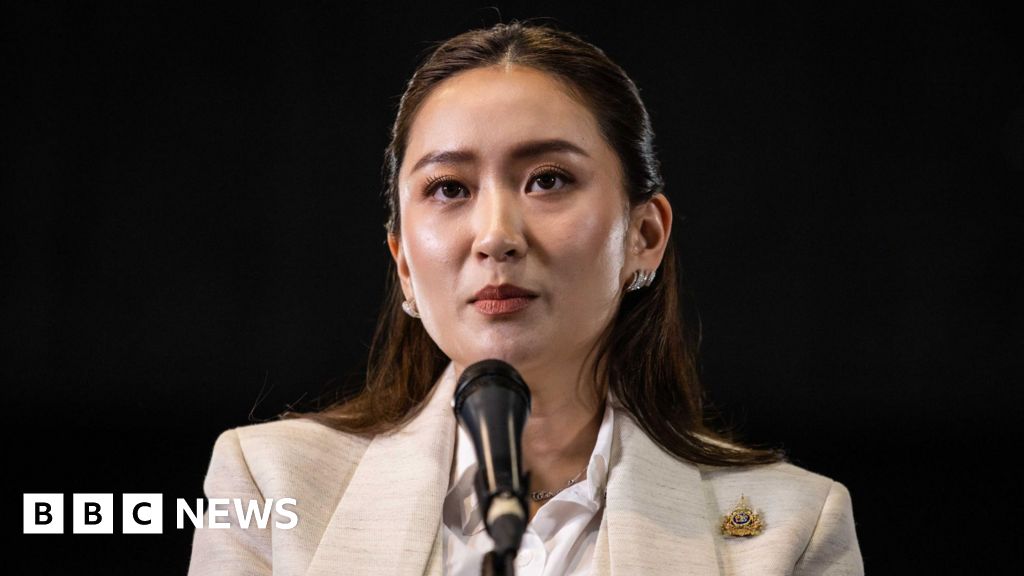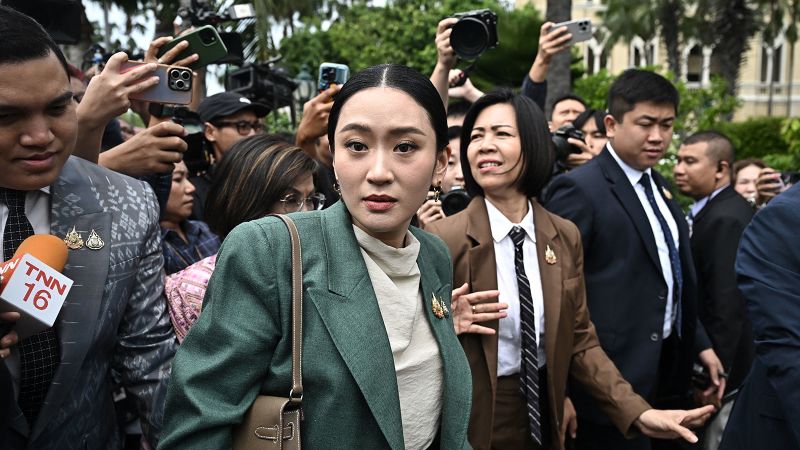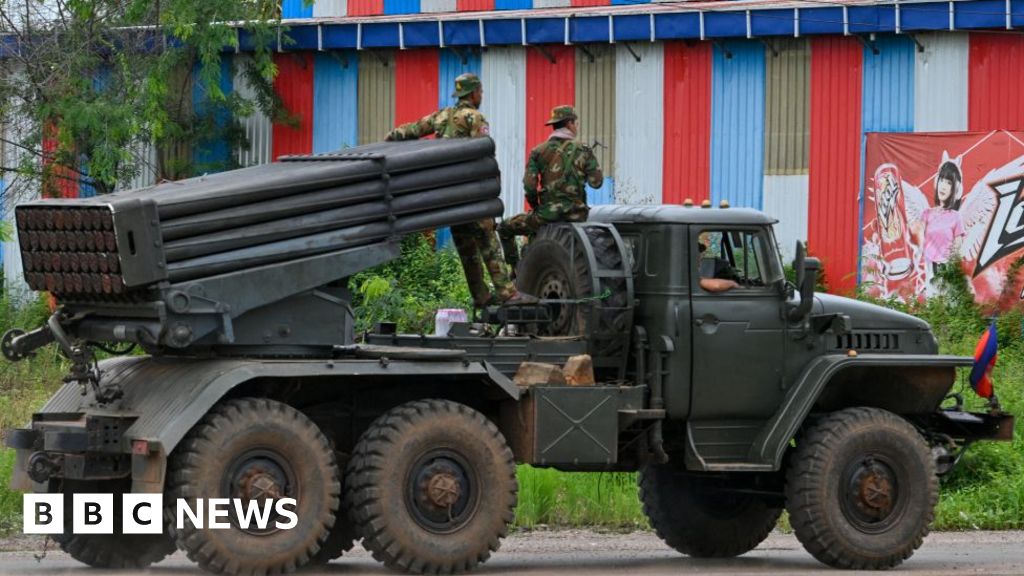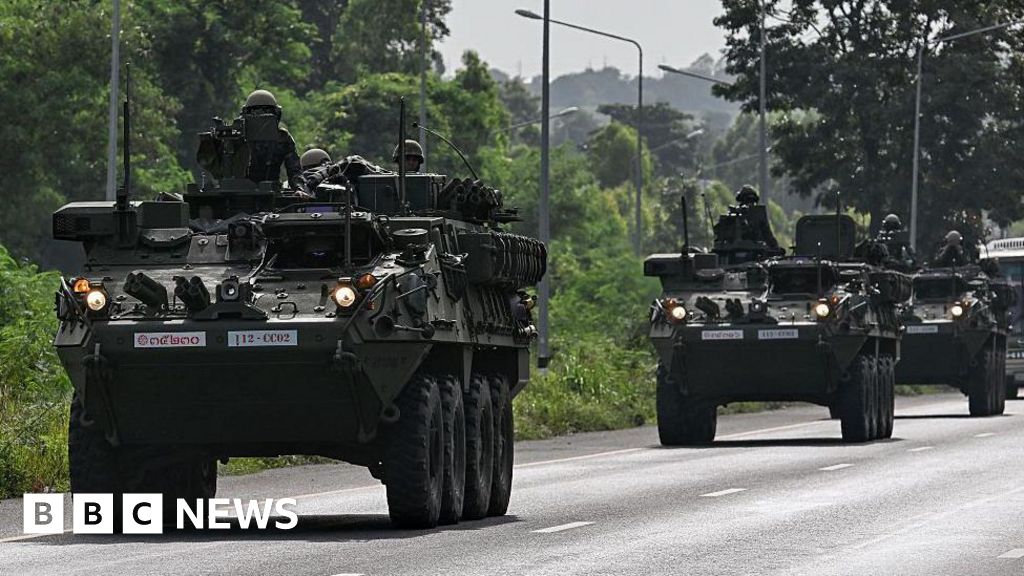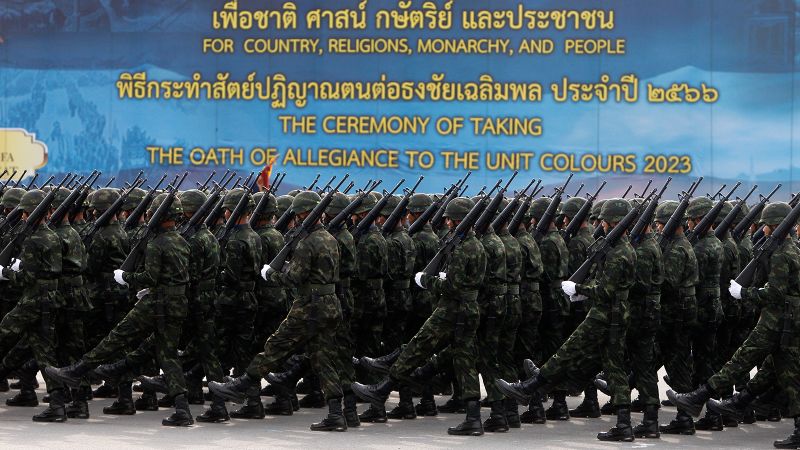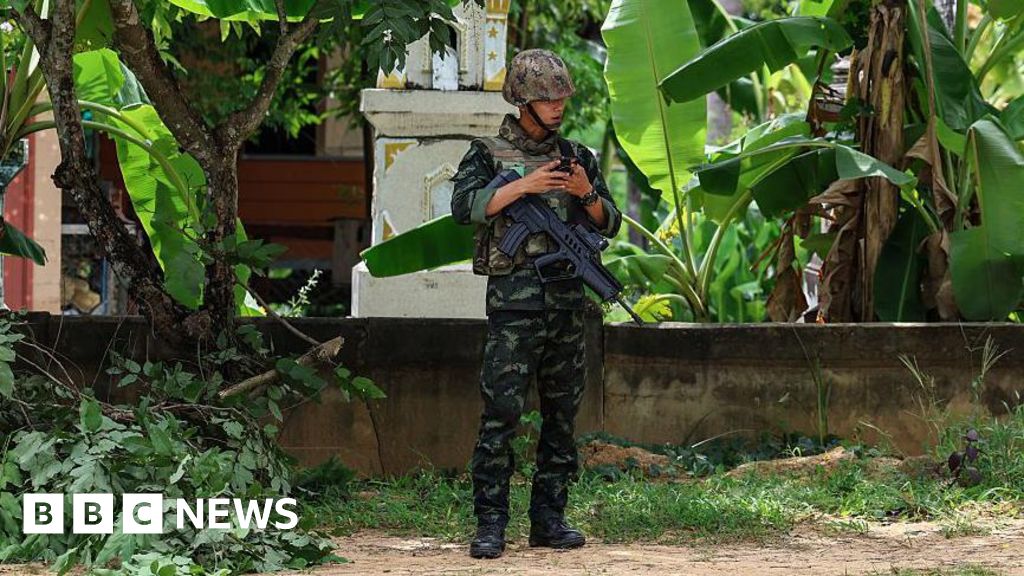Thailand's Political Turmoil: The Dismissal of Prime Minister Paetongtarn Shinawatra
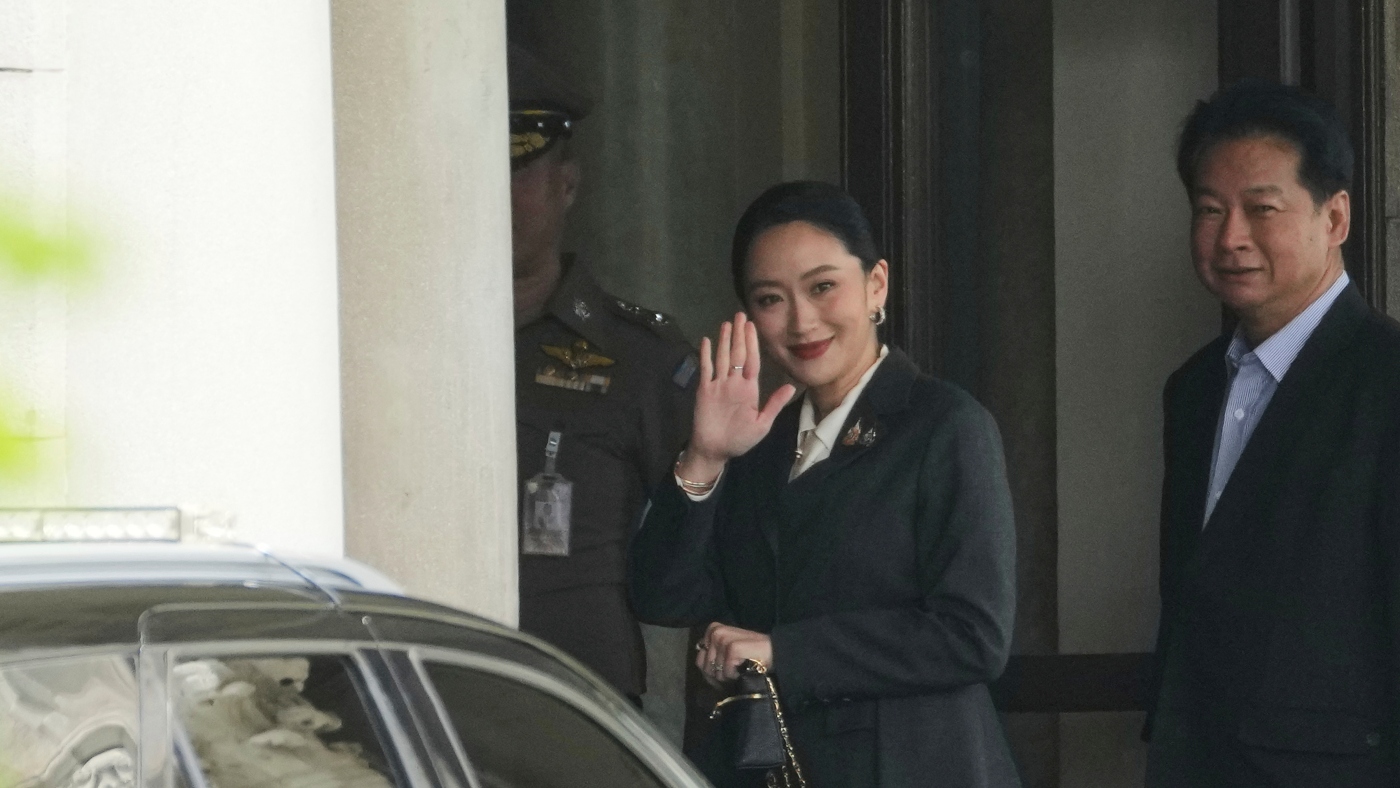
Introduction
In a shocking turn of events, Thailand's Constitutional Court has dismissed Paetongtarn Shinawatra from her position as prime minister. This ruling comes after it was revealed that she had a compromising phone call with the Cambodian leader, violating constitutional rules on ethics.
Key Details
The phone call in question took place between Shinawatra and the Cambodian leader, and reportedly contained sensitive information that could potentially harm Thailand's national security. This revelation has caused outrage among the Thai people, who view the prime minister's actions as a breach of trust and a violation of her role as a leader.
Shinawatra's dismissal has also sparked political turmoil within the country, with protests and calls for a new election. The ruling has shed light on the ongoing political tensions in Thailand and the influence of foreign powers in the country's affairs.
Impact
The dismissal of the prime minister has significant implications for Thailand's political landscape. It raises questions about the government's ability to uphold ethical standards and maintain national sovereignty. This ruling serves as a reminder that leaders must act with integrity and prioritize the interests of their own country above personal gains or foreign alliances.
The court's decision also highlights the importance of transparency and accountability in government. It is a wake-up call for leaders to act with honesty and integrity, as their actions have
About the People Mentioned
Paetongtarn Shinawatra
Paetongtarn Shinawatra is a Thai politician and businesswoman, born on 21 August 1986 in Bangkok. She is the youngest daughter of former Thai Prime Minister Thaksin Shinawatra and the niece of former Prime Minister Yingluck Shinawatra. Her family background is deeply rooted in Thai politics and business, with her father being a key figure in the country's political landscape before his ouster in a 2006 military coup. Paetongtarn graduated with a degree in Political Science, Sociology, and Anthropology from Chulalongkorn University in 2008. She furthered her education at the University of Surrey in England. Initially, she pursued a career in business before entering politics. Her entry into politics was marked by her nomination as the leader of the Pheu Thai Party in 2023. This nomination was significant, as it positioned her to potentially become a major figure in Thai politics. In 2024, Paetongtarn Shinawatra became the 31st Prime Minister of Thailand, making her the youngest person to hold the position and the second woman to do so, following in the footsteps of her aunt Yingluck. Her tenure was marked by her appointment as Minister of Culture in June 2025. However, her time as Prime Minister was cut short when she was suspended from office by the Constitutional Court on 1 July 2025. This suspension was due to a leaked phone call with former Cambodian leader Hun Sen, which raised concerns about her deference. Subsequently, on 29 August 2025, the Constitutional Court officially removed her from office. As of 2025, Paetongtarn has declared significant assets, totaling approximately ฿13.8 billion (about US $258 million), reflecting her family's wealth and influence. Despite her recent removal from office, Paetongtarn remains a notable figure in Thai politics, symbolizing the enduring influence of the Shinawatra family in the country's political landscape.
About the Organizations Mentioned
Constitutional Court
A **Constitutional Court** is a specialized judicial body with exclusive authority to interpret and enforce a country's constitution. Its core function is to determine the constitutionality of laws, executive actions, and amendments, ensuring that all government actions comply with constitutional principles[1][7]. These courts protect constitutional rights, settle disputes involving the constitution, and uphold the rule of law by providing an impartial forum for constitutional adjudication[1][3]. The history of constitutional courts dates back to the early 20th century in Europe, with modern forms evolving to address the need for judicial review of legislative and executive powers. The United States Supreme Court, established under Article III of the U.S. Constitution, is a prominent example, serving as the highest tribunal for constitutional matters and influencing global judicial systems with its long-standing authority and landmark decisions[4][6]. Many countries have since established constitutional courts or councils, each with jurisdiction tailored to their legal and political contexts. Key achievements of constitutional courts include safeguarding democracy by reviewing legislation before or after enactment, adjudicating disputes between state entities, overseeing election legality, and sometimes presiding over impeachment proceedings[1]. For example, the South African Constitutional Court is the apex court for constitutional issues, playing a vital role in interpreting and protecting the nation's constitution since its post-apartheid establishment[2]. Hungarian and Italian constitutional courts have innovated by imposing deadlines for legislative compliance or modifying statutes to align with constitutional norms[1]. Currently, constitutional courts worldwide operate as guardians of constitutionalism, balancing majority rule with protecting individual rights and social consensus. They employ various mechanisms for case referral—individual petitions, judicial references, or governmental requests—reflecting their integration within broader judicial and political systems[1][5]. Their role is particularly notable in business and technology sectors, where constitutional oversight can influence regulation, privacy rights, and digital governance frameworks, underscoring their ongoing relevance in contemporary governance and legal innovation.
Cambodian leader
The term "Cambodian leader" primarily refers to the political leadership of Cambodia, notably the transition from long-time Prime Minister Hun Sen to his son Hun Manet, rather than an organization by that exact name. Hun Sen, who governed Cambodia since 1985, was a former Khmer Rouge commander who consolidated power through a 1997 coup and led the Cambodian People’s Party (CPP) to dominate national politics for decades[1][2][4]. His leadership was marked by rapid economic growth but also by authoritarian practices and human rights abuses, including suppression of opposition and limited democratic freedoms[2][4]. Hun Manet took office as Prime Minister on August 22, 2023, representing the first generational change in Cambodian political leadership in decades. Educated in the UK and a former U.S. military academy graduate, Hun Manet inherits a relatively stable yet socioeconomically unequal Cambodia with strong confidence in financial institutions and the ruling CPP’s overwhelming parliamentary majority (82.3% vote share in 2023)[1][5]. His ascension signals potential shifts in Cambodia’s domestic and foreign policies, though it remains uncertain whether he will continue his father’s authoritarian legacy or pursue closer ties with Western nations[1]. Cambodia’s government structure is a constitutional monarchy with a multi-party democratic system established post-1993, led by the Prime Minister and supported by deputy ministers and state officials[5][6]. The CPP controls most government branches, including the National Assembly and the Senate, where Hun Sen now serves as Senate President[5]. While Cambodia’s economy has grown steadily (GDP around $32.4 billion with 5.6% growth in 2023), challenges such as political repression, corruption, and limited judicial independence persist[1][5]. The legacy of the Khmer Rouge era and ongoing human rights concerns remain notable historical and social aspects shaping Cambodia’s leadership and governance[2][3]. In summary, the "Cambodia
